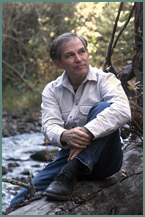
In the early 1980s, International Paper Company introduced a fee-based wildlife and recreation program on 1.2 million timber-producing acres in the South. In just three years, profits from that program totaled more than $2 million and represented 25 percent of the company’s total profits in that region. Furthermore, wildlife habitat was restored, game and non-game species increased, and hunters, anglers, campers and hikers reported better recreational experiences.
In Boise, Idaho, developer Peter O’Neill launched a residential housing development by revitalizing a degraded river and creating one of the nation’s first urban spawning streams for trout. These enhanced natural amenities also guaranteed premium values for his homes along the reclaimed stream. Ultimately everyone benefited from his entrepreneurial vision-the community, the homeowners, the wildlife and its habitat, and O’Neill’s company.
Some of America’s most treasured natural landmarks were preserved by entrepreneurs. These “enviro-capitalists” captured the amenity values and profited from their preservation efforts. Yellowstone National Park owes its existence in large part to Jay Cooke of the Northern Pacific Railroad. Because he foresaw a lucrative business providing transportation and tourist services to Yellowstone, Cooke pressed for the creation of a national park. Other examples of private conservation abound. The Huron Mountain Shooting and Fishing Club helped preserve an extraordinarily rich forest habitat in Northern Michigan, and Hugh Macrae and his descendants fought vigorously to save the Grandfather Mountain wilderness system in North Carolina.
“Enviro-capitalists” alone cannot achieve environmental quality. However, when market demands exist for products and amenities related to the environment, an entrepreneurial approach can offer a valuable alternative to regulation.
Pioneering conservationist Aldo Leopold understood the importance of environmental entrepreneurship and emphasized economic incentives over government regulation. “Conservation will ultimately boil down to rewarding the private landowner who conserves the public interest,” Leopold wrote. Profits and environmental quality can mix.
For more information see Enviro-Capitalists: Doing Good While Doing Well, a new book by PERC associates Terry L. Anderson and Donald R. Leal (Rowman & Littlefield, 1997 and the December 1998 (pdf) PERC Reports.


